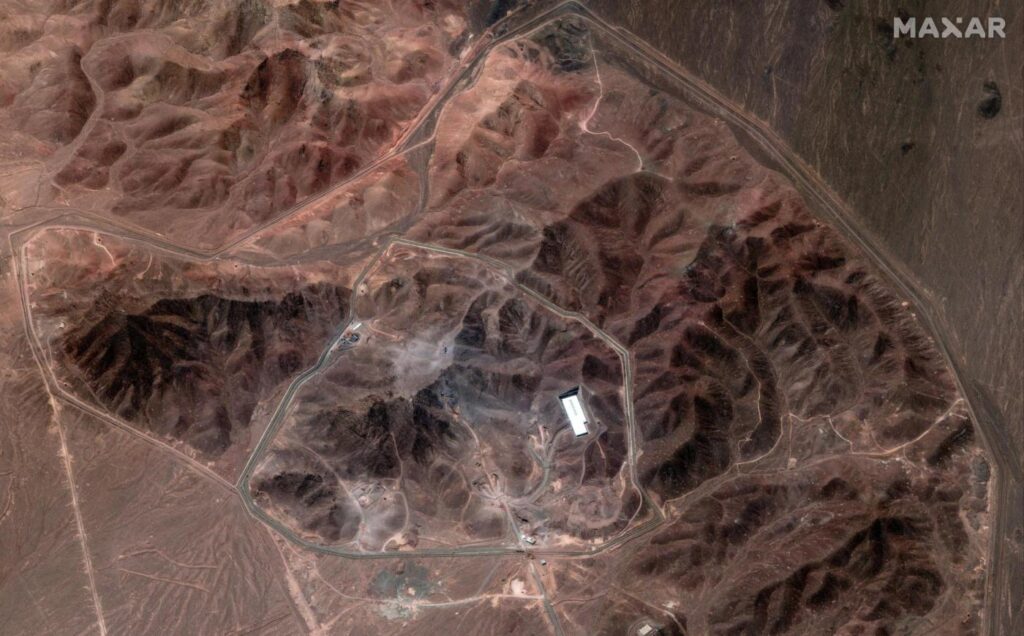Iran is currently assessing the extensive damage inflicted on its nuclear sites following a series of airstrikes by Israel and the United States. Despite the recent hostilities, Tehran has indicated a willingness to resume discussions with Washington regarding its nuclear program, as stated by government spokesperson Fatemeh Mohajerani on Tuesday.
Mohajerani acknowledged that key nuclear facilities at Fordo, Isfahan, and Natanz suffered “serious damage” from the American strikes. Her remarks, reported by Iran’s state-run IRNA news agency, mark a rare admission of the scale of destruction caused by the ongoing conflict, which has seen Israeli fighter jets penetrate deep into Iranian airspace with impunity.
Damage and Diplomatic Signals
The acknowledgment of damage comes as Iran’s leadership grapples with the aftermath of a 12-day conflict with Israel, which has severely impacted its military infrastructure. The possibility of reopening talks with the United States suggests Tehran is keen to mitigate further economic repercussions, especially as a new deadline for United Nations sanctions looms.
“No date (for U.S. talks) is announced, and it’s not probably very soon, but a decision hasn’t been made in this field,” Mohajerani stated, leaving the door ajar for potential diplomatic engagement.
Impact on Iran’s Nuclear Program
Israeli airstrikes, which commenced on June 13, targeted Iran’s Revolutionary Guard and its ballistic missile arsenal, as well as nuclear sites that Israel claims are part of Tehran’s nuclear weapon ambitions. Although U.S. intelligence and the International Atomic Energy Agency (IAEA) have stated that Iran’s organized nuclear weapons program ended in 2003, concerns remain over its uranium enrichment activities.
“The enemy aimed to change the country’s circumstances by assassinating military commanders and scientists, intending to spread fear and exert pressure,” said Iranian judiciary spokesman Asghar Jahangir.
Jahangir reported a government-issued death toll of 935 Iranian citizens, including 38 children and 102 women, as a result of the Israeli strikes. However, independent groups like the Washington-based Human Rights Activists have reported higher casualty figures, citing 1,190 deaths, including 436 civilians.
Activity at Fordo and Other Sites
Meanwhile, Iranian officials are evaluating the damage at nuclear sites hit by American strikes on June 22. Satellite images analyzed by The Associated Press show activity at Fordo, including trucks, cranes, and excavators, suggesting ongoing assessments or repairs.
The presence of these vehicles before the strikes raises questions about whether Iran moved any nuclear materials or centrifuges beforehand. The IAEA has previously warned that it has lost its “continuity of knowledge” regarding Iran’s nuclear program, indicating potential undisclosed activities.
Hard-Liners and International Reactions
Despite some Iranian officials, like Foreign Minister Abbas Araghchi, expressing openness to dialogue, hard-liners within the country remain staunchly opposed. The influential Kayhan newspaper, known for its hard-line stance, criticized potential negotiations, equating them to betrayal.
“Being a ‘traitor or stupid are two sides of the same coin,'” wrote Hossein Shariatmadari, the newspaper’s Khamenei-appointed managing editor.
Such rhetoric underscores the internal divisions within Iran about how to engage with the West, particularly following provocative suggestions that IAEA Director-General Rafael Mariano Grossi should face severe consequences if he visits Iran.
Looking Ahead
The current situation leaves Iran at a crossroads. On one hand, the damage to its nuclear infrastructure and the looming threat of renewed sanctions pressure Tehran to consider diplomatic avenues. On the other, internal political dynamics and hard-liner resistance complicate any potential negotiations.
As Iran navigates this complex landscape, the international community watches closely, aware that the outcomes of these tensions could have significant implications for regional stability and global security.
